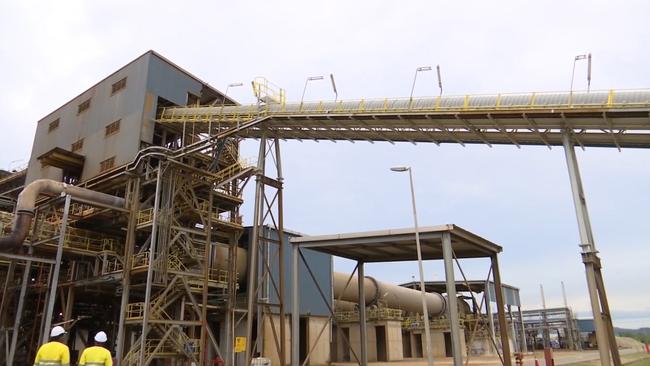Lynas half year profit falls 80%
Rare earths miner Lynas believes its status as an alternative supplier to China will help it navigate disruption caused by the coronavirus.

Rare earths miner Lynas Corporation believes its importance as an alternative supplier to China will help it navigate the disruption caused by the coronavirus.
Chief executive Amanda Lacaze said she was hesitant to make predictions about global events.
“But one of the key points for us is that we provide global diversity of supply in a geographic monopoly (China),” Ms Lacaze told The Australian.
“There are many end-users in western markets and in Japan which appreciate the importance of a secondary source of supply, and the virus has reminded them that disruption to supply chains can come from a number of different angles.
“On balance, it’s another opportunity for us to engage with our customers and end-users, although a pandemic is not helpful for anyone.”
On Friday Lynas reported almost an 80 per cent plunge in half year profit amid regulatory uncertainty which only ended this week after it finally received a licence renewal for its Malaysian operations.
The company’s net profit dived 79.6 per cent to $3.9m in the six months to December 31, with chairman Mike Harding, citing “difficult regulatory and market conditions”.
“Lynas Malaysia did not receive regulatory approval for an uplift in the lanthanide concentrate processing limit for Calendar Year 2019. As a result, production during the half year was managed at reduced rates,” Mr Harding said.
In addition, he said the Chinese light rare earth market was currently oversupplied with concentrate from the US and Africa.
“(This has led) to local market structural modifications, increased competition and continued weak prices.
“Future trends depend on how the China central government addresses this new situation.”
On Thursday, Lynas won a three-year extension to its Malaysian operating licence, ending uncertainty over the future of its refining operations.
Lynas says its new licence extends until 2023, and ends more than a year of speculation over the possible curtailment of its critical processing plant in Malaysia after the licence renewal became a political football.
As previously flagged under temporary licence extensions, the new licence requires Lynas to build a new permanent disposal facility for waste products from the plant and move some of its early stage processing – the cracking and leaching of ore mined in Western Australia – out of the country.
Revenue firmed 0.2 per cent to $180.12m for the half. Despite the tough conditions, Mr Harding said it was a solid result.
“Comparable sales revenue was achieved in a weak market. The NdPr market price decreased over the half year, but was offset by higher prices for the mixed heavy rare earth product (SEG) and for Lanthanum (La) and Cerium (Ce) products,” he said.
Mr Harding said significant progress was made on the Lynas 2025 plan to diversify the company’s industrial footprint.
This includes signing an option on a site in Kalgoorlie for a new Western Australian plant; the Kalgoorlie project being awarded Lead Agency status by the Western Australia government; Lynas submitting a compliant tender to the U.S. Department of Defence for a heavy rare earths separation plant in the US.
The company will not pay an interim dividend.
Ms Lacaze said the oversupply in the Chinese market was driven by a number of factors, particularly the supply of US concentrate.
Normal market dynamics, she said, would have a greater impact than the coronavirus on moving the market back towards equilibrium.
“Our job is to manage the business, cognisant of all the external factors,” the Lynas boss said.
“We’ve been able to sustain our revenue because we worked on strategies over the last four years to make our pricing more resilient by focusing on quality and development of other products.”

To join the conversation, please log in. Don't have an account? Register
Join the conversation, you are commenting as Logout